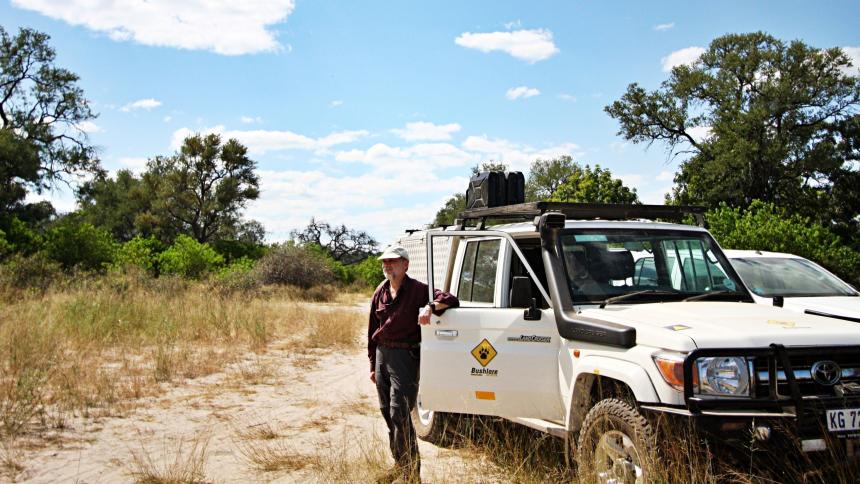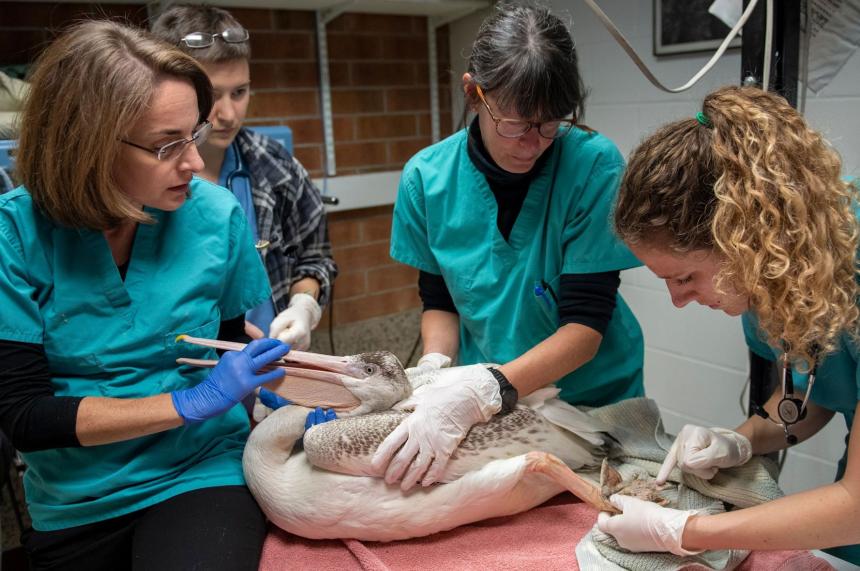In the News

February 05, 2023
Congratulations to Maggie Swift, who will be joining us as an Atkinson Center Postdoctoral Fellow! Maggie will use advanced computer modeling to simulate elephant movements in southern Africa that will make it easier to evaluate scenarios for integrative, sustainable land-use management.

February 03, 2023
A study led by Cornell researchers found that white-tailed deer – the most abundant large mammal in North America – are harboring SARS-CoV-2 variants that once widely circulated but are no longer found in humans.

January 18, 2023
From Ithaca to the plains of southern Africa, the Cornell Wildlife Health Center is working to heal the natural world. Launched in 2020, the center was formed to unite Cornell’s leading wildlife health professionals under a common mission: to repair the fractured relationship between people and nature.

January 16, 2023
The Cornell Wildlife Health Center has launched a new Student Support Fund for off-campus apprenticeships with free-ranging or captive wildlife, on-campus wildlife research, and student travel to present at professional conferences on wildlife health and conservation.

January 10, 2023
Led by Cornell's Dr. Michael Stanhope, a team of scientists has sequenced genomes of the great hammerhead shark and shortfin mako shark, both endangered species.

January 05, 2023
Protecting wildlife is hard, and a key step to determine if a wildlife species needs conservation intervention is finding them. The Cornell Wildlife Health Lab's Alyssa Kaganer describes using eDNA techniques to successfully find four-toed salamanders.

December 16, 2022
by
Martin Gilbert
It all started with an unexpected text message - “Do you know of any veterinarians willing to assist a snow leopard collaring project in a remote corner of eastern Kyrgyzstan?” One jumped immediately to mind…me!

December 14, 2022
Welcome to new CVM faculty member Dr. Jennifer Bloodgood, a wildlife veterinarian and biologist with interests in free-ranging wildlife health and disease, pathology, infectious disease, and the interface of human and wildlife health.

December 12, 2022
Cornell Animal Science major Genesis Contreras ’24 needed her service dog to keep her safe while working with the Cornell Wildlife Health Lab, but Nugget, a 4-year-old beagle, needed to be safe as well. A team across Cornell found a solution: "doggles."

December 09, 2022
Preserving and restoring natural habitats could prevent pathogens that originate in wildlife from spilling over into domesticated animals and humans, according to two new companion studies.
